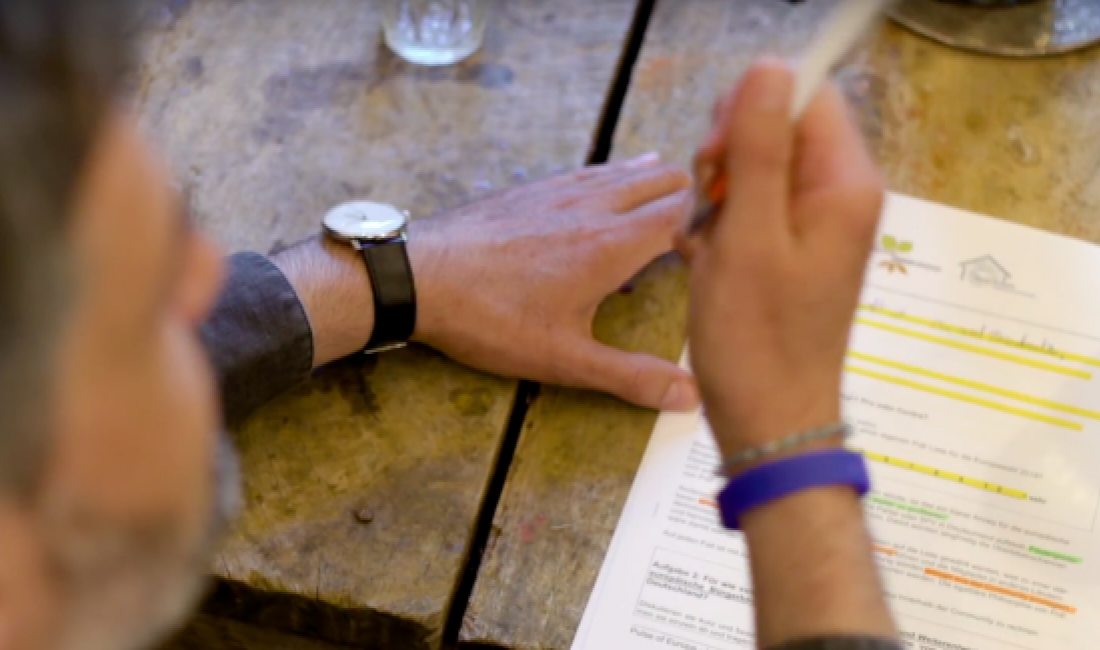In times of crisis we show our true face: governments everywhere are learning this right now and reacting to the pandemic in the way they know best – by regulating. Corona offers the whole of society the opportunity to perform at its best - and to use this opportunity to democratize democracy, writes political scientist Raban Daniel Fuhrmann.
In times of crisis, the executive power lives its heyday. Governments impose far-reaching and deep-cutting restrictions without public participation and often even without consulting the parliament. Is this wise and sustainable? Not only is it more likely that serious miscalculations happen, but it also threatens to undermine trust in politics and the state in general. In my work as a political consultant, I often see overworked and on-edge mayors who dominate their crisis teams in such a way that all critical and creative thinking is stifled. So how can we do better to manage Corona through more democracy and, at the same time, emerge stronger from the crisis?
The solution is Crisis Governance. Crisis governance is an approach that is designed to activate the co-creativity of our societies and at the same time deal with crisis appropriately. Crisis governance deals with how we make good and sustainable decisions under pressure, how we work out solutions and how we implement them together.
It comprises of four successive phases of tapping the crisis management potential of an organization or community: First, the way in which a crisis is proclaimed, the reactive preparation, is central. It should be done in a motivating and honest way, and crucially, early on. This shows that the leadership trusts itself and the community and sets the ethos for the crisis mode (Let’s show them what we got). A comprehensive "fitness check" with regard to the expected challenges, probable bottlenecks and possible surprises is advisable.
Proactive communication needed
Secondly, the actual crisis governance begins with proactive communication. Particularly in a situation of big threats, there is not only a great need for clarification, but there is also the danger of uncertainty. An ongoing, transparent and understanding communication and information policy is therefore indispensable. This includes honesty about the current status, about possible weak points and future developments, as well as a precautionary approach to dealing with false information and conspiracy theories.
Thirdly, creative coordination is needed to strategically guide the ideas for solutions and the potential of tens of millions of people and institutions (which are necessary to solve complex crises in a sustainable and democratic manner). An overarching coordinating body for crisis governance that uses agile methods to bundle forces and disseminate successful approaches and examples is suitable for this purpose.
Inclusive style of governance
Fourth and finally, crisis governance relies on co-creative collaboration: A comprehensive ignition of the enormous potential of common intelligence and creativity can only succeed if it is voluntary, not commanded. Such a participatory and inclusive style of governance is characterized by the acceptance of complexity - i.e. of individuality, difference and identity - and by working on an equal footing.
The way out of the crisis must be a fully democratic one. Not only because, as with the Corona crisis, we depend on the cooperation of all to comply with the measures, but because there is so much more potential in all of us. More citizen participation therefore shows us the best and most sustainable way out of the Corona crisis: open and representative resonance and consultation rooms that holistically expand and substantiate the upcoming decisions increase the quality of decisions and measures and strengthen the acceptance of drastic government measures.
Methods such as crisis councils - based on citizens' councils, where randomly selected people work together with experts and members of parliament to provide their executive bodies with rapid and informed advice - or HomeParliaments - which enable broad, low-threshold consultation by a large number of people on specific issues - are suitable for this purpose.
These are just a few of the possible procedures that can help to unlock co-creative potential and provide broader support for serious decisions even under crisis conditions through participation. If we enter the crisis as a democratic community, let us master it with the strengths of a democracy: genuine participation can help us not only to overcome the corona crisis and the threat of long-term consequential damage to society, politics and the economy, but to emerge from it even more democratically.




